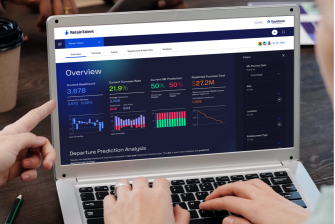Kaldor Centre Data Lab

The Kaldor Centre Data Lab publishes regularly updated data on Australia’s refugee status determination procedures. The data currently covers review at the Administrative Appeals Tribunal and Immigration Assessment Authority, as well as judicial review at the Federal Circuit and Family Court.
The data provides unprecedented insights into the decision-making patterns of individual tribunal members and judges, as well as into the way the system is operating as a whole.
Federal Circuit & Family Court
The Federal Circuit & Family Court data spans across over 6,700 cases from 1 January 2013 to 11 March 2021. The data was obtained using a programming script we developed that read and extracted the relevant data from published cases. For more details on the data collection process, see our recent article in the UNSW Law Journal.
The Federal Circuit & Family Court issued this statement in response to the publication of this data.
AAT & IAA
The data on the decision-making of the Administrative Appeals Tribunal and the Immigration Assessment Authority was obtained through Freedom of Information Requests.
The AAT dataset* includes 26,036 decisions made from 1 January 2015 to 18 May 2022.
The IAA dataset includes 10,157 decisions made from 1 May 2015 to 17 May 2022.
The Administrative Appeal Tribunal issued this statement in response to the publication of this data.
User note: Pivot Table
Each excel sheet uploaded in our database is accompanied by a PivotTable. A PivotTable is an interactive way to quickly summarise large amounts of data and can be used to obtain basic statistics on the various datapoints within each database. To use the PivotTable:
- Click anywhere in the table;
- In the PivotFields on the right handside of the screen select the data point you want displayed in the column, row and the relevant value.
Analysis
Explore

Publications
D. Ghezelbash, M. Bridle & K. Dorostkar, The Administrative Review Tribunal Bill: A missed opportunity for ending migration exceptionalism and creating a unified approach for administrative review, AUSPUBLAW (20 Mar 2024)
D. Ghezelbash, K. Dorostkar & S. Walsh, A data driven approach to evaluating and improving judicial decision-making: Statistical analysis of the judicial review of refugee cases in Australia (2022) 45(3) UNSW Law Journal 1085

Key resources
Policy brief
- Daniel Ghezelbash and Constantin Hruschka, Policy brief 16 'A fair and fast asylum process in Australia: Lessons from Switzerland' (October 2024)
Submissions
- D. Ghezelbash, Submission to the Inquiry into the Administrative Review Tribunal (Miscellaneous Measures) Bill 2024 (September 2024)
- D. Ghezelbash, Submission to the Inquiry into the Administrative Review Tribunal Bill 2023 (ART Bill) and the Administrative Review Tribunal (Consequential and Transitional Provisions No.1) Bill 2023 (Consequential and Transitional Bill) Submission 11 (January 2024)
- D. Ghezelbash, K. Dorostkar and M. Bridle, Submission to the Attorney-General’s Department responding to the Administrative Review Reform: Issues Paper (May 2023)
- D. Ghezelbash, K. Dorostakar & S. Walsh, Submission to the Legal and Constitutional Affairs References Committee Inquiry into the Performance and Integrity of the AAT (2021) (with the Refugee Council of Australia)
- D. Ghezelbash et al, Submission to the Australian Law Reform Commission Review of Judicial Impartiality (June 2021) (with The Behavioural Insights Team and Macquarie University)
- This submission is referred to extensively in the Australian Law Reform Commission's report, Without fear or favour: judicial impartiality and the law on bias (Dec 2021), notably in connection with Recommendation 13, 'The Commonwealth courts (individually or jointly) should develop a policy on the creation, development, and use of statistical analysis of judicial decision-making'.

Media
- Legal decisions and analytics, ABC RN Law Report (2 Aug 2022)
- D. Ghezelbash, How refugees succeed in visa reviews: new research reveals the factors that matter, The Conversation (10 March 2020)
- Who watches over our judges? ABC RN Background Briefing (8 Sep 2019)
- H. Cohen, Almost 99 per cent of protection visa review applications fail when heard by controversial judge, new figures reveal, ABC News, (6 Sep 2019)
- H. Davidson, Snap judgment: why Sandy Street's record on asylum cases stands out, Guardian (22 Sep 2020)
People
Have an inquiry?
For media enquiries, email Kaldor Centre's Communications Officer, Lauren Martin, lauren.martin@unsw.edu.au. For queries relating to interpreting or using the data, or for any suggestions as to other data points that you would like to see collated by the Data Lab, email Associate Professor Daniel Ghezelbash, Kaldor Centre's Deputy Director, d.ghezelbash@unsw.edu.au.







